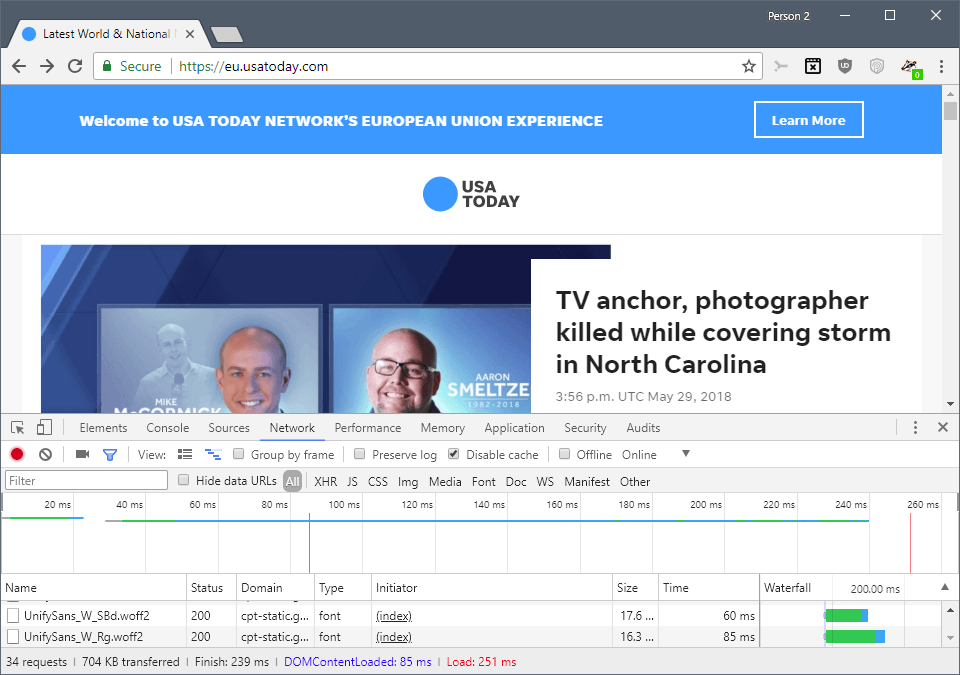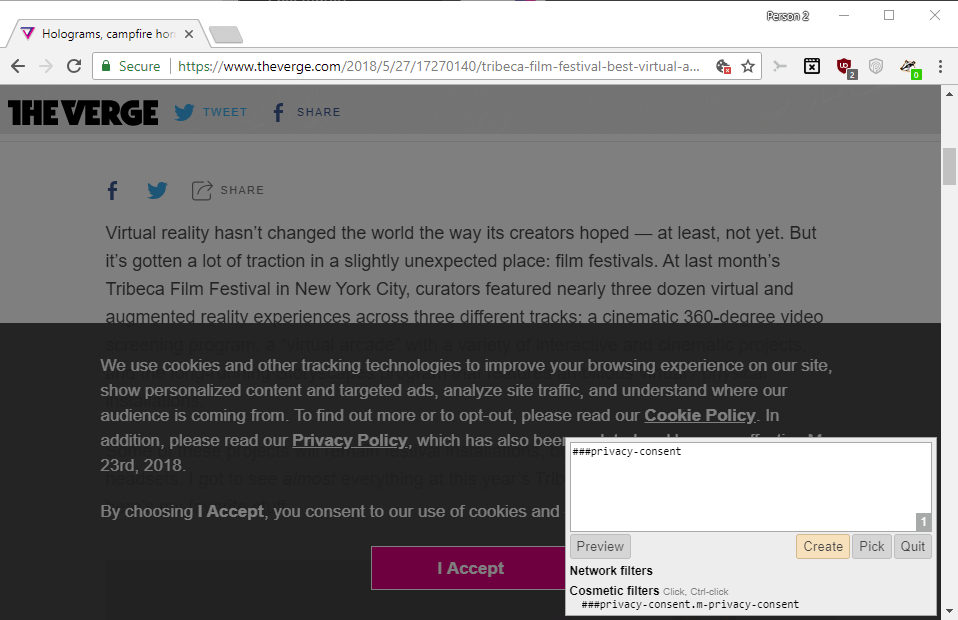Fun facts about GDPR and its effect on the Internet
The General Data Protection Regulation (GDPR), a new law to protect the data of people in the EU and EEA, was implemented on Friday.
While I have to admit that I'm not particularly fond of some of the requirements of GDPR, I think something like the GDPR was necessary to get online advertisement and tracking by large and small publishers in check.
One effect that I'm not particularly fond of is that European users are bombarded by "please accept" overlays or popups on sites, by emails stating that privacy policies were updated, and by emails asking users to verify newsletter subscriptions. It feels like the "we use cookies" invasion of sites all over again.
Some companies decided to block users from the European Union instead of creating a service that is compliant with the GDPR. That's somewhat understandable from a pure business perspective but if you look at it from a customer's perspective, it is probably not.
I'd like to present two examples of positive effects that the GDPR has either directly or indirectly.
Example 1: USA Today

If you visit the USA Today website from the European Union right now, you are redirected to https://eu.usatoday.com/. The page loads blazing fast as it comes without advertisement, tracking, and many of the scripts that run on the main USA Today website.
The site makes a couple of connections to a content delivery network but no third-party requests besides that.
Downside to this is that you get a basic site; it has no menus, no news sections, or anything else. You can read the top news on the site without ads or tracking.
Example 2 The Verge

The Verge displays a "we use" message at the bottom of the page. The only option presented to users is to click on the "I accept" button.
Unless users click on the button, virtually no script or tracking code is loaded. You can navigate the site without hitting accept, but the message won't just go away if you don't.
What you can do, however, is hide the overlay without accepting it. If you use uBlock Origin for example, you could use the element hider to hide the overlay and browse the Verge website without advertisement or tracking.
The technique should work on any site that displays similar messages to you when you visit them.
Closing Words
Many sites and businesses still work on their implementation of getting user consent and things will probably change for many of them in the coming weeks and months.
Users from outside of the EU may benefit from the GDPR as well as some companies announced that the worldwide implementation of GDPR compliance. Another interesting option that users have is to use a VPN and a connection to a European server to get the same treatment that EU citizens get.
Now You: What's your take on the GDPR so far?
This article was first seen on ComTek's "TekBits" Technology News

- Log in to post comments